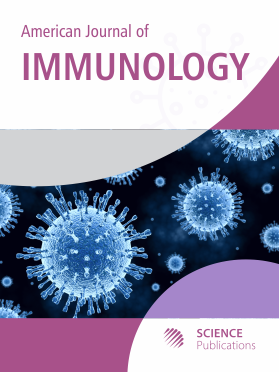Heparin-PF4 Antibodies in Heparin Induced Thrombocytopenia: Its Relationship with FcgRIIa Polymorphism
- 1 All India Institute of Medical Sciences, India
- 2 Loyola University of Chicago, United States
- 3 All India Institute of Medical Sciences, United States
Abstract
We did the pilot study, in an attempt to determine the prevalence of HIT in Indians and determine its relationship, if any, to FcγRIIa polymorphism, the occurrence of heparin-induced thrombocytopenia (HIT) was investigated in 33 Indian patients undergoing cardiovascular surgery (CVS) who received unfractionated heparin (UFH). Platelet counts were performed prior to the initiation of UFH therapy and 5-16 days, post-therapy. The fall in patients' platelet count >35% of the baseline value or <100,000 mL-1 was considered to be suggestive of HIT syndrome. Heparin-induced platelet aggregation (HIPA), Enzyme Linked Immunosorbant assay (ELISA) and Serotonin Release Assay (SRA) tests were performed in all the patients to detect the antibodies formed against the heparin and platelet factor 4 complex (H-PF4). DNA analysis for FcγRIIa polymorphism was done by allele specific PCR. Thrombocytopenia was found to be present in 10 (30%) patients. Of these, 5 patients were found to be positive by HIPA, ELISA and SRA tests. These 5 patients were considered to have classic HIT syndrome. One of these patients had bleeding while the others were asymptomatic. One of the HIT positive patients was found to be homozygous for FcγRIIaHis/ His polymorphism and others were heterozygous, had one defective allele with single amino acid change (Arg 131 His) at FcγRIIa platelet receptor. Frequency of occurrence of homozygous (FcγRIIaHis/ His) and heterozygous (FcγRIIaArg/ His) polymorphism was higher in patients with HIT (100%) than in the normal population (68%). The prevalence of HIT in the pilot study (15%) was higher than that in the west (5%) but comparable to that from Japan (12%) (14). However, the Occurance of FcγRIIa polymorphism in Indian (68%) was higher than in the east (51%) and comparable to that in the west (78%). Thus it appears that the FcγRIIa polymorphism may have some relation to occurrence of HIT. Higher prevalence of FcγRIIa polymorphism in Indian may predispose to higher prevalence of HIT in India. Thus, it is recommended that, heparin-treated patients should be routinely tested for not only aPTT but also for platelet count, HPF4 antibodies and FcγRIIa polymorphism analysis. From the pilot study, it shows that absence of FcγRIIa receptor polymorphism may suggest low or negligible risk of development of HIT antibodies. However, further studies required with more patients using the same protocol.
DOI: https://doi.org/10.3844/ajisp.2005.55.59

- 4,578 Views
- 3,014 Downloads
- 1 Citations
Download
Keywords
- Heparin-induced thrombocytopenia
- heparin-PF4 antibodies
- laboratory methods
- polymorphism
- prevalence
- Indian subjects
